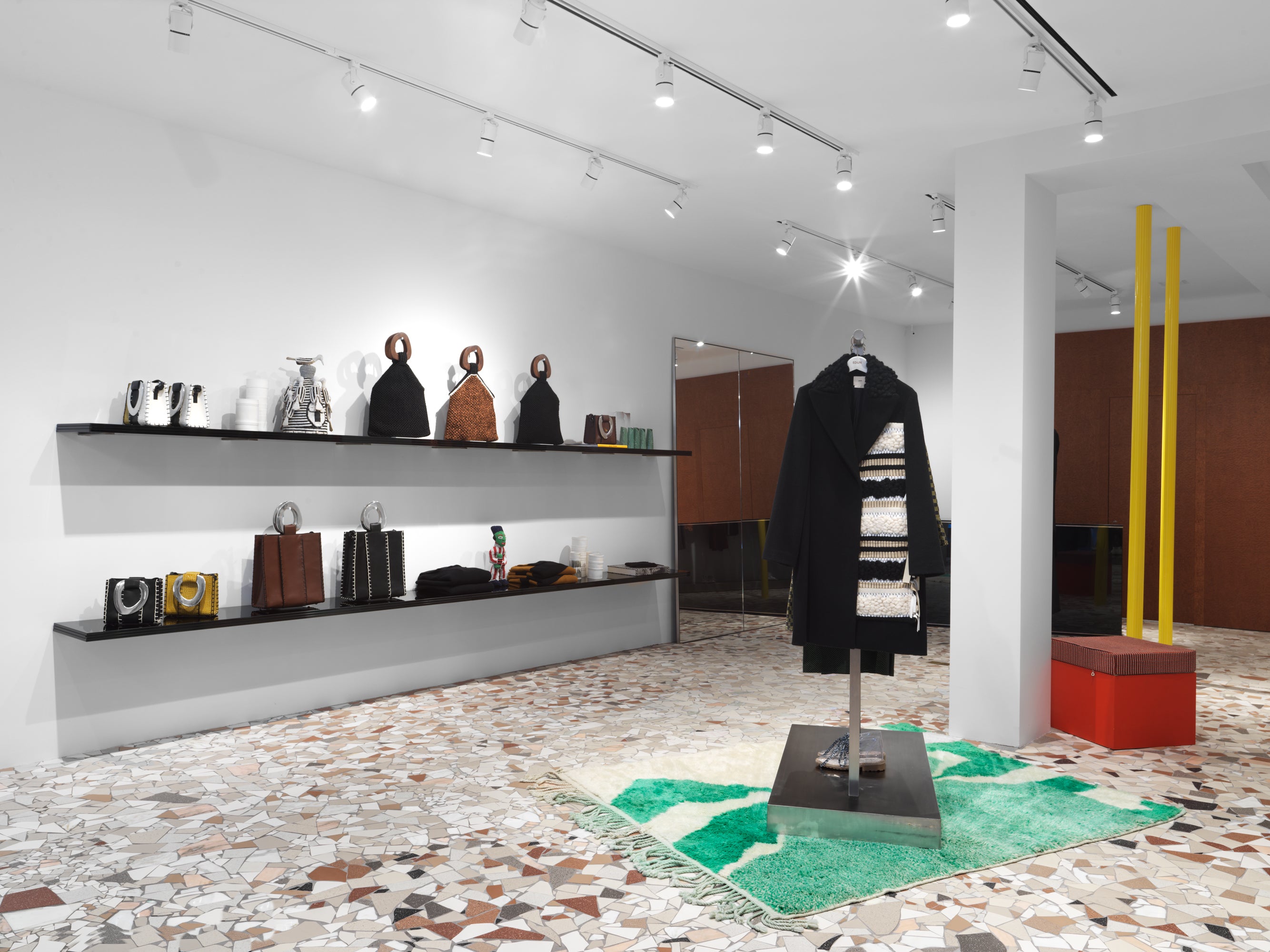Exclusive : A First Glimpse at Edun’s NYC Flagship Store.
Discover Edun's first-ever store, located in the heart of New York City.
Ali Hewson founded Edun in 2005. Back then, sustainable fashion was not a buzzword, it was a niche. Twelve years later, Edun is still sustainable and still producing quirkily elegant clothing across the African continent and reupping its commitment to working with artisans and makers from Morocco to Cameroon. “It’s hard,” Hewson admits. “But fashion is hard!” The thing that makes Edun alluring to shoppers is that, while it has had a couple bumps along the way, the clothing—now designed by a creative collective—looks so easy and free. Its brand-new, first-ever retail store, opening Wednesday in New York’s Soho, is a testament to its unstudied clothing and its commitment to supporting creative communities the world over.
Nestled between Sant Ambroeus and FDNY Ladder 20, Edun’s outpost is an oasis in the chaos of city shopping. This particular stretch of Lafayette Street is slightly less trafficked than the northern end—where Supreme fans are always lining up for something—and blessed with eternal sunshine thanks to the low-rise parking garage across the street. On the day I visit, Hewson has arrived from her uptown home on foot. “I love walking in New York because you really see it and feel it when you walk the streets. It’s so easy to do; it just takes a long time,” she says. And some comfortable shoes! Those you’ll find at the base of Edun’s metal racks: a white suede boot made in collaboration with the Kenyan brand Bata for the very affordable price of $150.
If you’re looking down, you’ll also notice an incredibly textured floor, made with a mosaic of reused materials like marble and tile in the style of a West African tradition. There’s a plush rug in white and mint made in collaboration with Paris Berbère (good news—it’s for sale!), and found artworks litter the shelves alongside ceramics by South African artist Lisa Firer. “The found pieces, we’re kind of attached to,” Hewson demurs, “but Lisa Firer’s pieces are for sale.”
She continues, “What’s amazing about having a store is that it starts to make the whole brand three-dimensional, not just for the customer but also for the team. You can really get a sense of what you’re creating and how to live in it . . . . We found the right space and got the aesthetic right, I believe.”
For Edun, which has experienced some creative turnover of late, this is a godsend. The store firms up its aesthetic as right between ur-eclectic and intentionally sparse. It’s a devil-is-in-the-details proposition. Look closely and you’ll realize that the fitting-room door is not mere oak but a sapele pommele tree native to Congo whose wood is flecked with miniature patterns like a leopard’s spots. Head to the racks and a black T-shirt knit will reveal tiny glass beads that shimmer in the sunlight. Read the fine print and you’ll find that small artisans across Africa make and benefit from Edun’s offerings. “Through all the trips, the team is always finding new artisans. The store is about Edun’s universe, but it’s also about sharing and showcasing more work,” says CEO Julien Labat. “That’s an important dynamic for us and an exciting aspect of this store, being able to have some small exclusivity and being able to present pieces that are unique.” Our tip: Don’t miss it.





 Back to All
Back to All